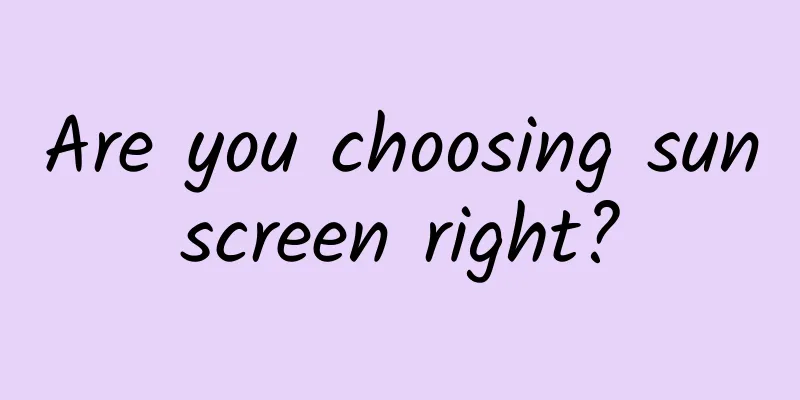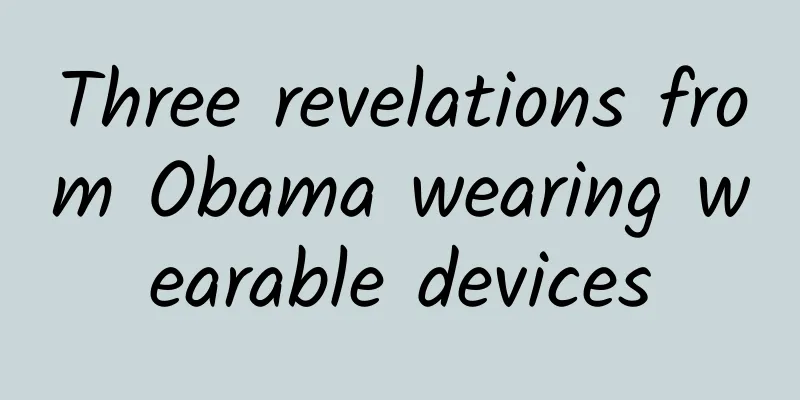Are you choosing sunscreen right?

|
With the arrival of high temperatures in summer, it is time to protect yourself from the sun. Excessive exposure to ultraviolet rays of different wavelengths can cause skin aging and darkening, accelerate the formation of spots, and even lead to skin cancer in severe cases. Therefore, it is crucial to use sunscreen correctly. However, there are many types of sunscreen products on the market. How should we choose the right one? 1. What types of sunscreen are there? Sunscreens are divided into two categories according to their principles: physical sunscreens and chemical sunscreens. Physical sunscreens are milder and less irritating to the skin, making them suitable for people with sensitive skin and children. 2. Which is more important, SPF or PA? Both SPF and PA are important. For sun protection, sun protection strength and suntan prevention are equally important. SPF stands for the ability to protect against UVB (medium-wave erythema effect ultraviolet rays), and is an indicator for evaluating the ability of sunscreen products to prevent the skin from getting sunburned. The SPF value can be increased from 10 to more than 50. Taking SPF30 as an example, this "30" means that after applying the sunscreen cosmetics, only 1/30 of the ultraviolet rays irradiated to the skin surface can be absorbed by the skin. So, assuming that we are not properly sun-protected, after being exposed to sunlight for 15 minutes at noon, the skin will have light red spots. If you apply SPF30 sunscreen products, the skin will not turn red until it is exposed to sunlight for 450 (15×30) minutes. However, this is a more ideal state. In fact, SPF30 sunscreen products will not protect our skin from getting sunburned for more than seven hours. We will affect the actual sunscreen effect of sunscreen products due to other factors such as sweating. PA stands for the effect of protecting against UVA (long-wave ultraviolet rays that cause dark spots), and is an indicator for evaluating the ability of sunscreen products to prevent skin from getting tanned. The PA coefficient is represented by "+", "+" means that the skin tanning time is extended, and the more "+", the stronger the sunscreen ability is. However, the actual sunscreen effect will also vary due to various factors. 3. Is it true that the higher the SPF value and PA “+” of a sunscreen, the better? From a numerical point of view, the higher the SPF value and the more "+" after PA, the better the product's UV protection effect. However, from the perspective of user experience, the higher the SPF value is not necessarily the better. Because sunscreens with high SPF values contain more chemical sunscreen ingredients and the liquid is thicker, it is inevitable that it will feel heavy when applied to the skin, which puts a greater burden on our skin and may even cause allergies. Sunscreens with low SPF values contain fewer chemical ingredients and are thinner and more comfortable to use. So we can choose sunscreen products according to different occasions. 4. Do I need to wear sunscreen only in summer? Ultraviolet rays exist all year round, and April to September is the season with the strongest ultraviolet rays. Winter ultraviolet rays are only 20% weaker than summer ones. In addition, the ultraviolet rays on cloudy days are as high as 90% of those on sunny days. Clouds have almost no effect on isolating ultraviolet rays. Only dark and heavy rain clouds can block some ultraviolet rays. Therefore, sunscreen is necessary in both summer and winter. In addition, the period from 10 a.m. to 2 p.m. in summer is the strongest period of ultraviolet radiation, so try to avoid this period. Apply sunscreen evenly about 20 minutes before going out, because sunscreen does not have the effect of sun protection as soon as it is applied, and it takes time for the skin to form a film. When using it, taking the face as an example, it is more appropriate to take an amount the size of a one-yuan coin. At the same time, remember to remove makeup in time to avoid sunscreen residue on the skin clogging pores and causing acne. If you want to meet higher and safer sun protection requirements, you can choose "hard sun protection" products such as sun protection clothing, hats or umbrellas with UPF>40 and UVA<5%. In addition, as the temperature continues to rise in the summer, you should eat more foods that clear away heat and promote the production of body fluids and replenish qi, such as lotus root, mung beans, bitter melon, cucumber, banana, pear, etc., to relieve the dryness and heat in the body. The article is produced by Science Popularization China-Starry Sky Project (Creation and Cultivation). Please indicate the source when reprinting. Author: Liu Junling, Exhibition Instructor at Xinyu Science and Technology Museum Reviewer: Zhang Na, Associate Researcher, Doctoral Supervisor, Peking University School of Public Health |
<<: Are prebiotics probiotics? The real relationship between the two is this →
Recommend
Don’t fall into the trap again! Common problems and strategy analysis of community operations!
What is the difference between community operatio...
7 steps to completely dismantle live streaming sales
Live streaming sales are very popular. It's m...
Methodology for information flow delivery in wedding photography, food and other industries!
The information flow master who has been in the i...
Why are 80% of operations destined to be just miscellaneous tasks?
If a person wants to operate well, I think he may...
Hot Science of the Week | The world's first living robot gives birth to a baby
2021 Week 48 Issue 13 Total Issue 359 This week, ...
A cultural relic looks like Ultraman? The museum responded: It's just a Han Dynasty pottery figurine
Recently, a cultural relic from the Nanchong Muse...
I spent 100,000 yuan in tuition to buy these 12 PPTs!
Good evening! So many friends came at once (nearl...
"Po", "Min", "Benzene"... Do you know what these words in medicine names mean?
|||| Written by reporter Wang Xueying, Photo and ...
Progress bar example ProgressDialog in Android
Progress bar is used to show the progress of a ta...
How to master new media marketing? 4 keys and 8 ways!
As one of the new and rapidly emerging industries...
How to improve customer acquisition efficiency and achieve 10 times conversion rate within 150 days?
Many friends who work in P2P would say that there...
Monthly sales fell below 10,000 units. Wei Jianjun asked Haval H6 to learn marketing, which was really the wrong prescription.
Do you still remember the legendary car Haval H6?...
How to recall users? Reviewing the 5 major strategies will teach you how to return scientifically!
The biggest headache for many operations colleagu...
Can ginger, Polygonum multiflorum and black sesame really help grow dark hair?
“People born in the 1990s have already started lo...
Why do some people get diarrhea when they eat spicy food, get nervous, or catch a cold? The mystery that has lasted for many years has finally been solved
Expert of this article: Wang Xiaohuan, Doctor of ...









